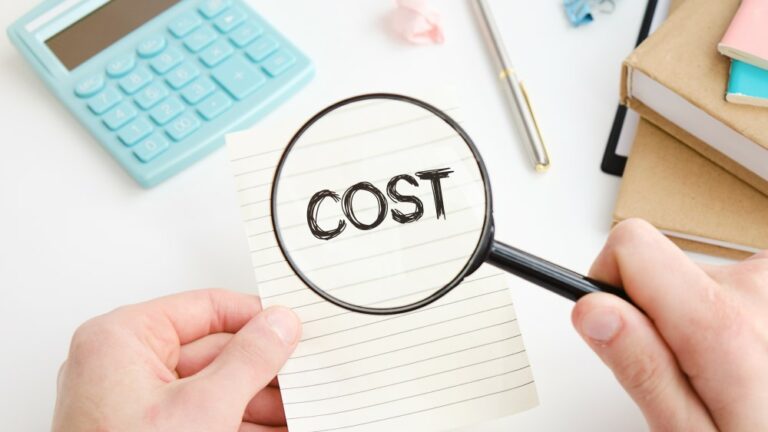Are clothing expenses deductible as business expenses for my own company?
We are often asked whether clothing expenses (and VAT) are deductible as business expenses. It is understandable that this question often arises, as it is quite a gray area. In some cases it is, but in many cases it is not. In this article, we will discuss whether the costs of clothing and personal care are deductible for entrepreneurs and whether there are any conditions attached. We will also give specific examples of work clothing that is and is not deductible.
When is clothing deductible as a business expense?
Clothing is tax-deductible if it is actually work clothing that you specifically need for your work. In addition to clothing, this also includes (work) shoes and accessories.
According to the tax authorities, something is considered work clothing if:
- it is clothing that is required for your job. It is therefore clothing that you wear to perform that job or that is even mandatory in order to perform the job. This is different from clothing that you normally wear outside of work.
- there is a logo or image on the clothing that covers at least 70 cm² of the surface area. This applies in particular to items of clothing that are not immediately recognizable as work clothing and that you could also wear in your free time.
Is clothing deductible for athletes, presenters or artists?
This is also a bit of a gray area. For (top) athletes, this may be the case because it is very clear that they wear sportswear for their work.
For presenters and artists (such as singers, dancers, stand-up comedians), if they wear certain outfits that are used purely for performing, they can deduct these. However, this does not apply if these outfits can also be considered ‘normal’ clothing. For example, an extravagant dress for an opera singer is easier to classify as work clothing than a colorful T-shirt for a stand-up comedian.
Presenters and artists may also be able to deduct the costs of personal grooming as business expenses. Specific conditions apply here as well.
Other entrepreneurs are not able to deduct the costs of personal grooming (such as hairdressers, beauticians, cosmetics, physiotherapists, yoga, etc.). For them, these are definitely personal expenses that must be paid privately.
A few concrete examples: deductible or not as work clothing?
|
What is it?
|
What is it worn for?
|
Is it deductible?
|
Why/why not? |
|---|---|---|---|
|
A black suit + smart shoes for a businessman |
For business meetings and a conference |
No |
Because you can also wear this black suit outside of work, for example at a wedding. |
|
Pointe shoes for a professional ballet dancer |
For rehearsals and dance performances |
Yes |
Without pointe shoes, a ballet dancer cannot do their job. Furthermore, you don’t wear pointe shoes in everyday life. It is clear that this is purely for professional purposes. |
|
Safety shoes for a self-employed chef |
For work in the kitchen |
Yes |
A chef needs this clothing to do their job. In fact, safety shoes are mandatory in most kitchens. |
|
Sports shoes for someone who is employed as a speech therapist and also gives sports lessons for a gym as a freelancer. |
In the gym during sports lessons. |
No |
It is a job she only has for one hour a week. Furthermore, this person would have needed sports shoes anyway for practicing sports in her free time. |
|
Black clothing for a pastor |
During church services |
Yes |
This is an exception, because black clothing can also be worn outside of church. However, the Supreme Court has ruled that this is a deductible expense because this person can only appear in black. |
|
A cocktail dress for a writer |
She is going to the book ball. |
No |
Firstly, because she definitely does not need the dress for her work, and secondly, because a cocktail dress can also be worn to a party. |
|
Smart clothing for a Personal Assistent |
During business meetings |
No |
It is not sufficient to demonstrate that this smart clothing is really only for business purposes. Furthermore, it is a choice to dress this way, and not a ‘requirement’ as it is in other professions. |
|
Overalls for a carpenter |
While making/installing furniture and other items |
Yes |
Overalls for carpenters are clearly intended as work clothes. They are not something you would wear in your free time. |
|
A polo shirt with a logo for someone who is a cocktail shaker at events |
During the events where he is shaking cocktails |
It depends |
If the logo covers at least 70 cm² of the polo shirt, it qualifies as ‘workwear’. If it is a small logo, it does not. |
In most cases, clothing costs are therefore not deductible as business expenses. The VAT on these costs cannot be reclaimed in such cases. Check whether the clothing is specifically required for the work you do and whether there is an obligation to wear certain clothing for work (e.g. for safety reasons). If the clothing has your company logo, make sure that the logo meets the minimum size requirements.






